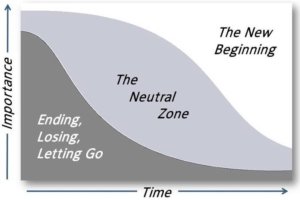How do you adapt to change?
You go through so many changes in your career and life, and it should get easier as you continue to go through. Right?
Enter COVID 19, wherein a very short period of time we have all had to transition, dramatically, to staying and working from home, and possibly also supporting children through eLearning or homeschooling. We have also lost many of the privileges in our society that we took for granted in the past, and are living through tremendous uncertainty about the future.
Everything has changed, from our simple routines of shopping at the supermarket to having to wear masks and social distancing. The change is something that I don’t particularly want to embrace, but then I always think about Carl Jung’s expression, “What you resist persists.” Think about that statement, and let it inspire you to find ways to embrace the situation you are in at this time.
It starts with acknowledging this is a tremendous change for everyone. Period.
This change is global but is very personal in terms of your own adaptation. Consider a few thoughts to help you understand where you are in the change cycle and how to make that work for you:
1. Realize that you’re not alone in struggling to rapidly adapt to change. We are all in this together. It helps to talk this through with others and, with help from technology, there are so many ways to do this, other than a phone call. Keep communication going.
2. Communication at work is even more important at this time. As I mentioned in my article Suddenly Working From Home: 12 Tips to Support your Virtual Office and You, visibility and crafting your message are real priorities now. You want to ensure that leadership sees your participation and, where possible, innovation, and creativity while working from home. If you are a leader, your team needs accurate and timely communication from you.
3. Take care of yourself. If there was ever a time for self-care, this is definitely it. The trick is to figure out what that is for you. Clients, for example, have told me that they are postponing vacation time beyond the pandemic, whenever that is. But, the truth is, you could probably best use some time off right now, especially as summer has arrived in the northern hemisphere. Take a day off to relax at home, as best you can. Schedule activities throughout the day just for you.
4. Understand the models of change for yourself. There are stages of change and it can be helpful to understand where you are at. The Transition model by William Bridges presents three stages:
- Endings/Letting Go – Realizing that you have to move away from what was. Everything is changing. Are you ready to let go of the past? In this case, the past is just a few months ago, before the pandemic began to spread.
- The Neutral Zone – You’ve let go of the past, but are still vacillating between how it was and how it is right now. The present moment. And sometimes ready for new beginnings, only to fall back to neutral.
- The New Beginnings – You’ve fully embraced a new routine, a new change, a new way of doing things.
5. Be patient…with yourself and others. Yes, I know many people are impatient to get out of their homes, go out and about shopping, eating at restaurants, back in the office, and maybe you are also. Consider the model above…it’s important to realize that these things have changed for now, and we in response must also change.
6. Be ready to pivot. There are great examples of this through the pandemic. A local whiskey distillery bar repurposed themselves to begin manufacturing hand sanitizer for the first responders in our community. Are there examples in your organization where you can rethink strategy and pivot? What are the priorities now in your organizations vs. what they were at the beginning of the year? What changes can and should be made?
7. Does your career need a pivot? Within all of the changes, is this a good time to think about making changes in your career? Are you in the ideal career? What’s your vision about the best career for you? Does staying in the same place move you closer to that vision?
8. Stop waiting for things to get back to normal…seize this time to create a new normal. The new normal will definitely be different than the past.
Change can be embraced
The Bridges Transition phases are about moving forward to the new beginnings. Where are you on that change curve?
ACTION CHALLENGE
How are you getting through this COVID 19 transition? What lessons are you learning? Are any of the solutions above helpful in your situation? What else can you use to help your progress? It’s also helpful to write down “What’s Working/What’s Not” during this pandemic time. This can help you to see some options and lead to greater clarity.
Lupe S. Wood, MS, PCC, is a certified Career/Executive Coach. She coaches individuals and leaders to career fulfillment, transition, and advancement. She also consults for results with businesses and solopreneurs. Her background includes 12 years in senior leadership for a Fortune 100 corporation and 7 years as a coach, with a Master’s degree in Organizational Effectiveness and Executive Coaching.
For more information, please visit my website at www.upcoached.com



